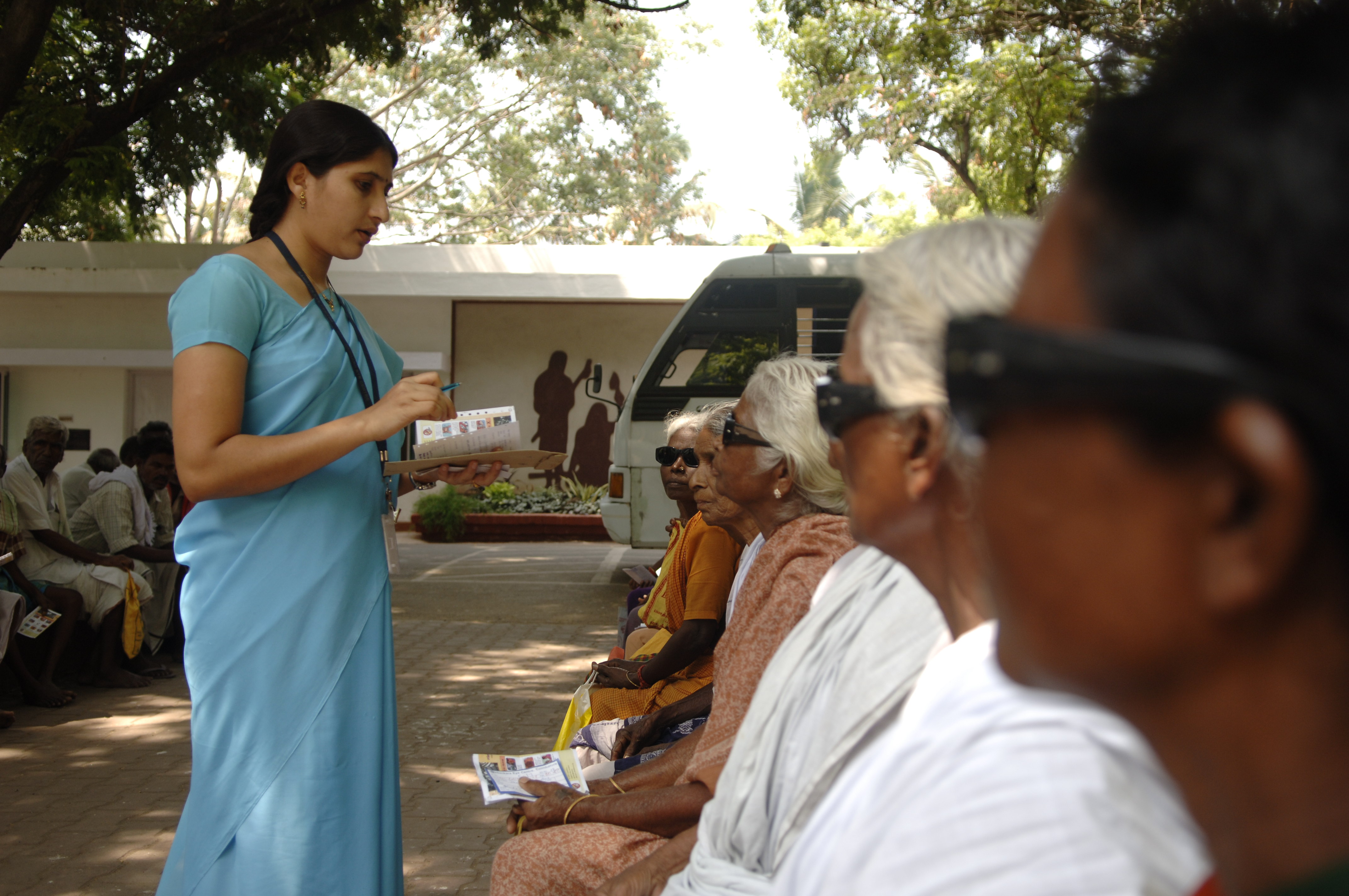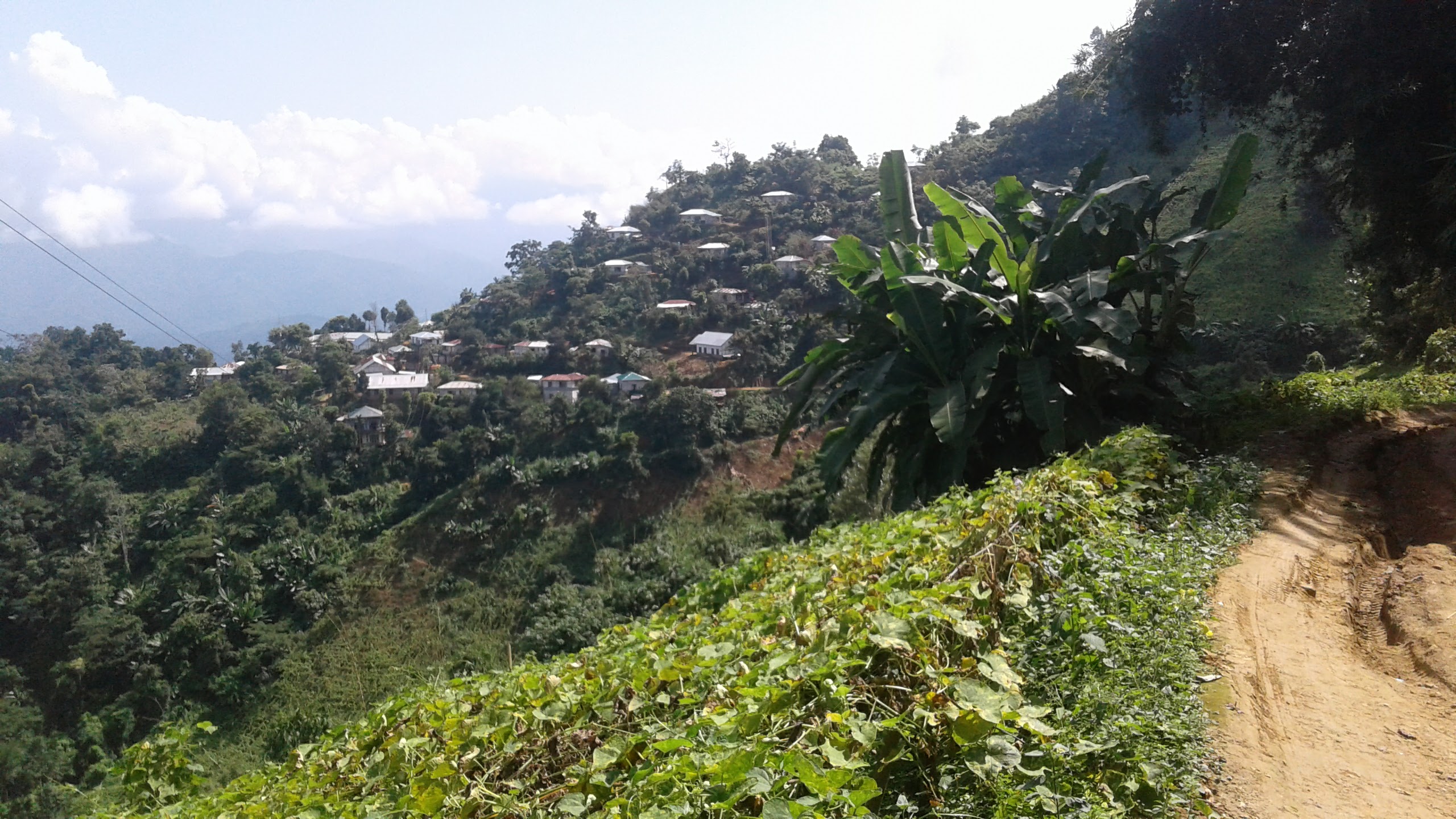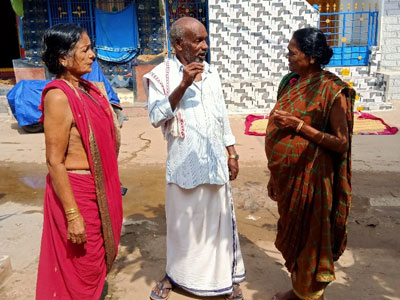Born Too Soon: Understanding ROP
Created By: Shrikant Ayyangar

Shadowing the eye-screening technicians from K.B. Haji Bachooali (KBHB) Charitable Ophthalmic and ENT Hospital, I cover myself in scrubs before entering the Neonatal Intensive Care Unit (NICU). The nurse from the Navi Mumbai Municipal Hospital wheels in a tiny baby girl closer to the screening unit. Her tiny arms are only few inches bigger than the technician’s finger. Born prematurely in 28 weeks and weighing only 1100 grams, the neonate had to be screened for Retinopathy of Prematurity (ROP), which is a blinding disorder caused by abnormal development of retinal blood vessels in premature neonates. The baby unfortunately was diagnosed with ROP and was advised regular follow-up to check the progress of this eye condition.
As we stepped out of the NICU, the technician from KBHB explained that in some cases the abnormal retinal blood vessels heal on their own, but regular screening is of paramount importance. He also elaborated that in cases where the ROP progresses, there is a need for surgical intervention or laser treatment.
Generating Awareness – Need of the hour
Around 30% of the neonates in a NICU can be affected with ROP and almost 10% of them can go completely blind if they don't reach an eye specialist within 30 days of birth and undergo the required treatment. An article in the Times of India highlighted that out of the 3.5 million premature births in India every year, almost one lakh children may need to be screened for ROP. However, lack of awareness on this issue is leading to blindness in 3000 children every year. While we mark the World Prematurity Day on 17th November, we aim to generate greater awareness as a first step towards eradicating this preventable form of blindness.

Community Sensitisation – Another key component
We step out of the NICU and head towards the waiting area to meet with mothers who have come for the follow-up. A 27-year-old mother shares proudly that this is her third child. While she is regular with the screening appointments and follow-up, she shares hesitantly about the lack of co-operation from her in-laws.
In a matter of few minutes as she shares her plight, an elderly woman (her mother-in-law) walks in grumbling on how much more time will it take at the hospital. She continues to complain on how these constant visits to the hospital is taking all her family’s productive time away. Hearing the conversation, the team from K.B. Haji Bachooali steps in to intervene in the gentlest way possible. They explain that these 4-5 regular follow ups are in the best interest of the baby’s vision/eyesight and if these precautionary measures are not taken into consideration now, it could lead to lifelong blindness. Hearing this, there is a sea of change in terms of the reaction. The grandmother’s frown instantly transitions to smiles and she thanks us all for the noble work being done by all the people involved.

On a Mission
Aside of blindness due to ROP, pre-term babies are quite prone to multiple health issues and some of these can also be fatal. In order for them to survive, they require constant medical care and treatment. This imposes a severe financial burden on the parents, particularly people from the lower income strata of the society.
With the mounting costs of several medical treatments, ROP screening is often neglected either due to the additional costs or lack of awareness. Understanding the criticality of the situation, Mission for Vision piloted its Mission Nayan project in September 2018. This initiative offers free ROP screening and treatment for neonates from socio-economically challenged backgrounds. In order to ensure there is greater awareness on ROP, the project builds the capacity and skills of healthcare providers and frequently conducts awareness sessions for parents as well.
The Mission Nayan project is currently being implemented in Ahmednagar, Buldhana, Jalgaon, Mumbai. Navi Mumbai, Satara and Thane regions through our hospital partners H.V. Desai Eye Hospital and K.B. Haji Bachooali (KBHB) Charitable Ophthalmic and ENT Hospital. We are grateful to our donors Givaudan and Cognizant Foundation who understand the need for such interventions and have offered their support in every possible way to eradicate this form of preventable blindness.
Thanks to this programme, we have provided eye health interventions to 900+ neonates and continue to provide ROP screening through 10 Hospitals and Health Centres.
For more information regarding Mission Nayan, please visit the programme page: http://www.missionforvision.org.in/mission-nayan
---
About the Author: Shrikant Ayyangar is the Lead for Communications at Mission for Vision, where he spearheads the organisation’s communications efforts and plays a key role in communication strategy, website management, social media outreach, media relations, content curation and branding activities.
SHARE NOW:
RELATED ARTICLES

An Eye for Women Empowerment
Mission for Vision Staff shares her views on how including women in the eye-care workforce can fuel the country's economic growth.
Read More
The Uphill Eye Health Challenge
Traditionally, Mizoram’s hilly terrain poses many challenges in terms of accessing eye care services. Here are some challenges and solutions that could address this issue.
Read More
Diary of an Eye Health Volunteer
An array of articles are written on volunteers who are doing incredible work for the society. While these articles often deal with a particular area of expertise, this story is something different. It is the unique journey of Mr K. Bhimaya Reddy that led him to becoming an eye health volunteer.
Read More